Start Licensing’s Ian Downes returns to Iceland and examines the competitive edge it gains from working with well known brand names on an exclusive basis.
Prompted by a LinkedIn post, I returned to Iceland this week. Of course, the retailer not the country.
The post I read was from one of the Iceland buying team. She posted about a new ‘exclusive’ product range that Iceland is launching this week. The range in question featured Mary Berry. Iceland is launching a Luxurious Toffee and Apple Pudding and a Sticky Ginger Pudding. The buyer went onto to describe this as a ‘long-term partnership’ which involved Iceland’s development chefs, one of its suppliers and, of course, Mary Berry.
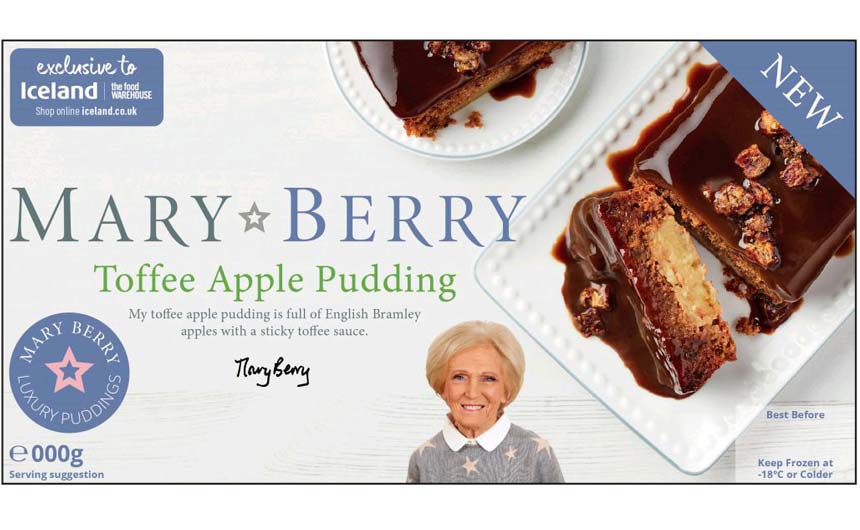
My return to Iceland confirmed its commitment to licensing and exclusives before even entering the store. It had a poster sited near the store that spelt out Exclusive to Iceland in big letters accompanied by brand logos for Greggs, Del Monte, Barratt, TGI Fridays, Slimming World, Harry Ramsden’s, Slimming World, Hula Hoops and Space Raiders.
This certainly marked my card before going into store and confirmed that ‘exclusives’ are a core part of Iceland’s strategy. Clearly Iceland has evaluated the value of exclusives and working with well known brand names. It gives it a competitive edge, engages consumers and is an initiative that isn’t entirely about pricing.

For brand owners, it is a route to market that delivers instant distribution and is a safe way to extend a brand. Iceland is an expert in its category and invests in product development. This is reassuring for a brand owner. It is also a gateway to new ideas and fresh thinking around their brand. There are of course some potential downsides. Probably the most significant risk is working on an exclusive basis. This may close off other opportunities and limit developments with other retailers. I am sure brand owners weigh this up and take a balanced view.
Licensing deals are often about taking a series of decisions based on the best evidence available at the time of doing the deal.
Within store Iceland is very good at ranging the brands it is working with and also flagging up its exclusive status. Most fixtures have hearers and shelf strips with the featured brand. Iceland also recognises the value of brand identity, making sure the featured brand ranges are easily recognised and carry brand cues like colourways. Its Greggs range is a good example of this. The range was a broad one, well stocked and achieved good stand out. Likewise the Harry Ramsden’s range.
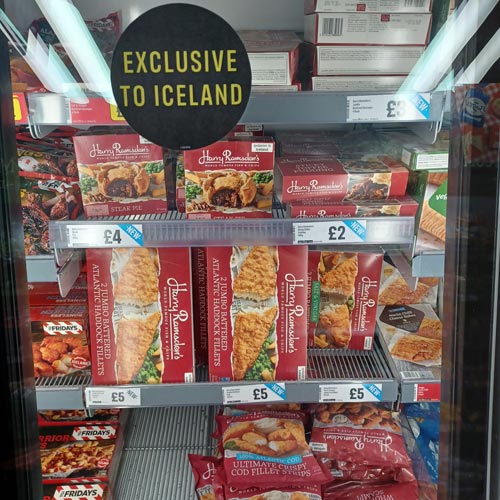
The ranges are also well focused with core products front and centre – for example 2 Jumbo Battered Atlantic Haddock Fillets. Building ranges like this makes shopping easier for consumers and convenience is a key part of Iceland’s appeal.
Brand licensing features heavily in Iceland’s ice cream and frozen ice lolly offer with featured ranges including Butterkist Toffee and Popcorn ice cream, SLUSH PUPPiE Strawberry Ice Cream and a broad range of Barratts’ confectionery ice lollies. These products are ones that seem on trend in terms of the category and ones which will appeal to consumers because of that. It allows consumers to try new flavours and formats in a convenient way and at reasonable prices.
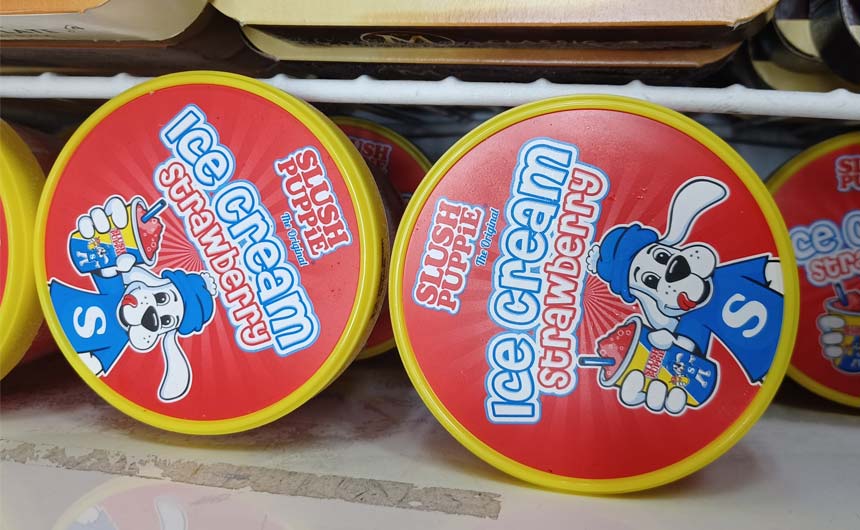
Outside of the exclusives, Iceland supports licensing in other ways and includes a number of other licensed products ranging from a Vimto flavoured cheesecake through to Mr Kipling cakes featuring Roald Dahl characters. The latter range is part of a long running partnership. Rather like the ice cream and frozen ice category, Iceland was offering some on trend new products in the cereal aisle with Oreo O’s cereal. Seemingly Iceland has recognised that offering its consumers new, innovative and on trend products is a good strategy. This blended with good price offers and convenience encourages consumers to shop again and return to store.
Iceland is definitely a shop to watch in terms of its brand exclusives and overall it is a good role model to point to in terms of how a retailer can engage with brand licensing.
I moved on from Iceland to pop into a Poundland store located nearby. One theme Poundland is promoting at the moment is back to school products, most of which seemed to be non licensed. However, clearly back to school drives retail sales and I am sure a lot of retailers are hoping that it will perform well for them.
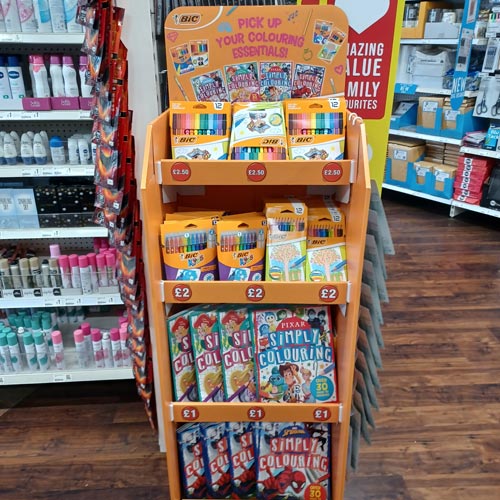
One feature I did note in Poundland was a BiC-branded FSDU filled with BiC pens, but also licensed colouring books from Autumn Publishing. These included Pixar and Spider-Man titles. Not sure how this FSDU was developed, but it made good sense to combine colouring pens and colouring books in an FSDU. I’m sure it has proved effective.
Another example of a retailer maximising space by deploying FSDUs. I expect to see more retailers deploying techniques like this and combining products to make shopping easier for consumers.
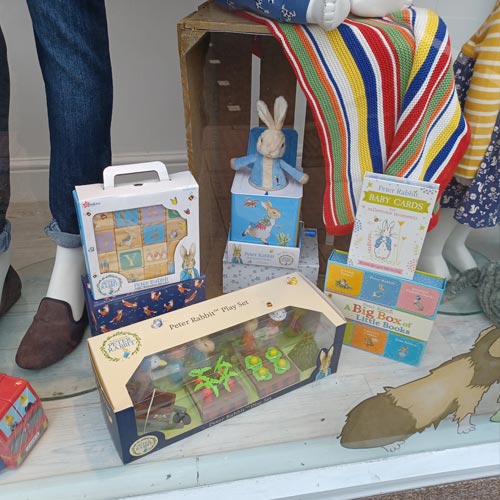
Finally, a visit to Farnham reminded me that high street retailers haven’t lost the art of window displays. Retailer JoJo Maman Bébé had created an eye-catching window display themed around animals linked to a wider promotion.
The window graphics worked really well and the product on show was well coordinated. It included licensed products such as Peter Rabbit and Spot. It was good to see a high street retailer using its windows so well to sell and to attract consumers in. It was, of course, also encouraging to see licensing playing its part in the display.
Ian Downes runs Start Licensing, an independent brand licensing agency. His Twitter handle is @startlicensing – he would welcome your suggestions for what to look out for.

































